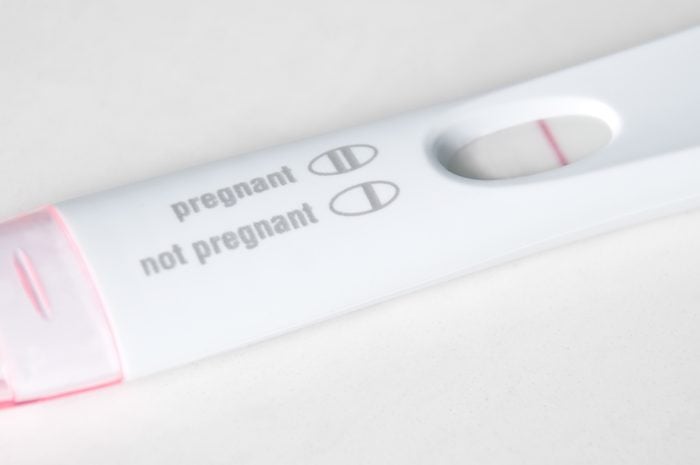
The truth about hysterectomy surgery
For women, a hysterectomy—an operation in which a female’s uterus is removed—is one of the most frequently performed surgical procedures in the United States. According to the American College of Obstetricians and Gynecologists (ACOG), during 2000–2004, approximately 3.1 million hysterectomies were performed, which is approximately 600,000 per year. Here, health experts expose the truth behind some common myths about undergoing a hysterectomy—and when it’s not even necessary.
Myth: Only older women with uterine cancer should undergo a hysterectomy
Truth: Women of all ages have hysterectomies for a variety of reasons, including, yes, the onset of gynecological cancer, as well as uterine fibroids, uterine prolapse, abnormal vaginal bleeding, endometriosis, pelvic inflammatory disease, and more. “They are performed on both pre or post-menopausal women,” says Pari Ghodsi, MD, a Los Angeles-based ob-gyn. These are cancer symptoms women are likely to overlook.

Myth: You should only undergo a hysterectomy if cancer is detected
Truth: Often viewed as a “last resort” procedure, hysterectomies for noncancerous reasons are usually considered only after all other treatment approaches have been tried without success. “A hysterectomy is a woman’s only treatment option in cases of cervical, uterine, or ovarian cancer,” says Linda Bradley, MD, vice chair of obstetrics and gynecology at the Cleveland Clinic in Ohio. In an interview with everydayhealth.com, Dr. Bradley states that an emergency hysterectomy may also be necessary if there’s an uncontrolled uterine hemorrhage or infection. “However, in the vast majority of other cases, alternatives to having a hysterectomy should be offered to women but often aren’t,” Dr. Bradley said. “For many doctors, their only answer is to treat the problem with a hysterectomy, which is often unnecessary.” All women should be familiar with these symptoms of cervical cancer and these symptoms of ovarian cancer.

Myth: During a hysterectomy, your entire uterus is removed
Truth: There are actually three different types of hysterectomies: supracervial, total, and radical. Depending on a woman’s individual medical reason for the hysterectomy, a surgeon may choose to remove all or only part of their uterus. Sometimes, during a hysterectomy, the cervix and/or ovaries are also removed. A total hysterectomy removes the whole uterus and cervix. In a supracervial, or subtotal hysterectomy, a surgeon removes only the upper part of the uterus, keeping the cervix in place; this hysterectomy can only be performed laparoscopically or abdominally. And in a radical hysterectomy, generally performed when cancer is present, a surgeon removes the whole uterus, tissue on the sides of the uterus, the cervix, and the top part of the vagina. Additionally, the ovaries may also be removed—a procedure called oophorectomy—or may be left in place.

Myth: Vaginal is the only way to perform a hysterectomy
Truth: There are actually three ways surgeons perform hysterectomies: vaginally, abdominally, or with laparoscopic, or robotic, assistance. When women choose their preferred method of hysterectomy, the physician should take into consideration how the operation may be performed most safely and cost effectively to fulfill the patient’s medical needs. In general, according to ACOG, evidence has found that vaginal hysterectomy has better outcomes and fewer complications than laparoscopic or abdominal hysterectomy.

Robot-assisted hysterectomies should be ruled out completely
Truth: Actually, no—robotic surgery is an accepted surgical option for some women undergoing a hysterectomy. However, robot-assisted surgery is really for those who have a minimally invasive hysterectomy; not for those undergoing a more invasive procedure. Here’s what it’s like, according to the Mayo Clinic: “During robotic surgery, your doctor performs the hysterectomy with instruments that are passed through small abdominal incisions. The magnified, 3-D view makes possible great precision, flexibility and control.” Plus, you’ll probably be able to resume normal daily activities more quickly than you could after open surgery. These are 50 secrets surgeons won’t tell you.

Myth: You will immediately go into menopause if you have a hysterectomy
Truth: According to Dr. Ghodsi, a hysterectomy is the surgical removal of your uterus, not your ovaries. “Therefore, the biggest misconception is that you will go into surgical menopause after you have a hysterectomy. This only occurs if you have your ovaries removed as well,” she says. Additionally, ob-gyn Lauren Streicher, MD, of The Oz Blog explains, “It’s your ovaries, not your uterus, that provides estrogen. Since removal of the ovaries is sometimes done at the time of hysterectomy, many people understandably, but mistakenly, think that is always part of the procedure.” Dr. Streicher says women under 50 usually keep their ovaries unless they have a situation in which there is a problem with an ovary, or their ovaries are contributing to their problem, as in a case of severe endometriosis. Thus, if a woman opts to keep her ovaries intact, nothing will change hormonally.

Myth: You can still get pregnant if you have a partial hysterectomy
Truth: “It’s important to understand that if you have a hysterectomy you can no longer carry a child,” explains Dr. Ghodsi. Once you have a hysterectomy, you’ll no longer have periods. The procedure signals the end of fertility, and it should be noted that some women wait to have a hysterectomy until after they have completed their families.

Myth: Hormone therapy is not an option if the ovaries are removed before menopause
Truth: This is not true; ACOG states hormone therapy can be started immediately after surgery. After the ovaries are removed, a woman has an increased risk of osteoporosis, which is when bones because weak and brittle. Therefore, hormone therapy can be given to relieve one’s signs and symptoms of menopause and can help reduce the risk of osteoporosis. Other medications can be given to prevent osteoporosis if you are at high risk. These are the symptoms of menopause you need to watch out for.

Myth: You can no longer have sex once you have a hysterectomy
How soon you can have sex after a hysterectomy really depends on the type of hysterectomy you underwent, according to Dr. Streicher on everydayhealth.com. Generally, two to four weeks post-surgery is okay to resume intercourse (with your doctor’s go-ahead, of course), if your cervix was not removed along with your uterus. However, if your cervix was removed, it takes about six weeks for the back of the vagina to heal enough to resume sex.
Myth: Recovery from a hysterectomy is extremely painful and long
Obviously, everybody—and literally, everybody—is different, but in general, recovery depends on the mode of hysterectomy, explains Dr. Ghodsi. “Vaginal, robotic, and laparascopic have faster recovery times than abdominal. While a hysterectomy is a surgical procedure; it’s painful and recovery time can be up to six weeks, but most women feel much better after two. However, their activity is still limited.” Next, read about these things that doctors don’t know about women’s health.

